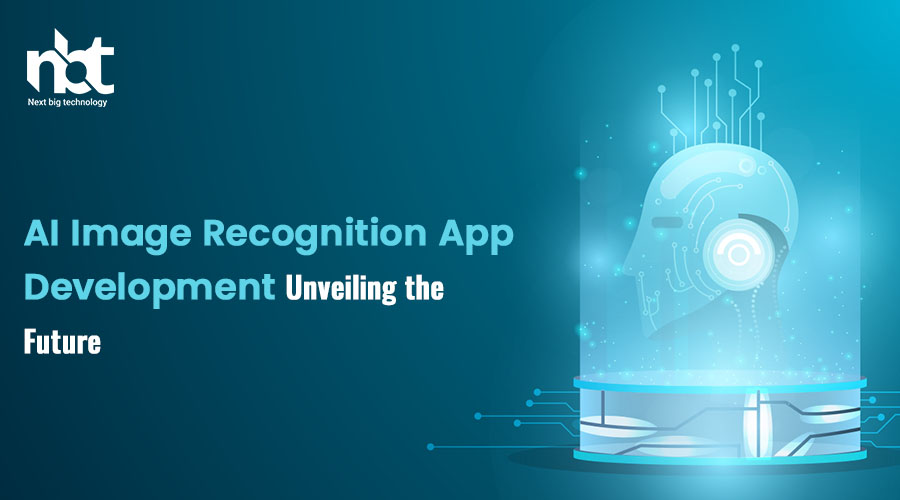Table of Contents
Introduction
A. Definition of AI Image Recognition
AI image recognition involves the use of artificial intelligence to identify and interpret visual information from images or videos. This revolutionary technology enables machines to perceive and understand the visual world, mimicking human cognitive functions.
B. Importance of AI Image Recognition Apps
The significance of AI image recognition apps cannot be overstated. From streamlining business processes to enhancing security measures, these apps have become indispensable in various industries.
The Technology Behind AI Image Recognition
A. Machine Learning Algorithms
At the core of AI image recognition is machine learning, where algorithms learn from data patterns to make predictions or decisions without explicit programming.
B. Neural Networks
Neural networks, inspired by the human brain, are pivotal in recognizing complex patterns and features within images, contributing to the accuracy of AI image recognition.
C. Deep Learning
Deep learning, a subset of machine learning, involves neural networks with multiple layers. This enables the system to automatically learn and improve from experience, making it more adept at recognizing diverse visual elements.
Steps in AI Image Recognition App Development
A. Data Collection and Labeling
The first step involves gathering a vast amount of labeled data to train the algorithms effectively. Accurate labeling is crucial for the model’s precision.
B. Training the Model
During this phase, the model is exposed to the labeled data, learning to recognize patterns and features. The iterative process refines the model for enhanced accuracy.
C. Testing and Refining
Thorough testing is conducted to evaluate the model’s performance. Refinements are made based on feedback, ensuring the app meets the desired standards.
Key Features of Successful AI Image Recognition Apps
A. Accuracy and Precision
The success of an AI image recognition app hinges on its ability to provide accurate and precise results, minimizing errors in identification.
B. Speed and Efficiency
Real-time processing is a key feature, especially in applications where quick decision-making is critical, such as in security systems.
C. Adaptability to Diverse Datasets
Versatility in handling varied datasets ensures the app’s applicability across different industries and use cases.
Use Cases of AI Image Recognition Apps
A. Healthcare
In the medical field, AI image recognition aids in the rapid analysis of medical images, assisting healthcare professionals in diagnosis and treatment planning.
B. Retail
Retailers use AI image recognition for inventory management, customer engagement through visual search, and preventing theft.
C. Security and Surveillance
Enhancing security measures, these apps can identify potential threats or anomalies in surveillance footage, bolstering overall safety.
Challenges in AI Image Recognition App Development
A. Limited Labeled Data
The scarcity of accurately labeled data poses a challenge in training models effectively, impacting the app’s recognition capabilities.
B. Ethical Considerations
As AI image recognition becomes more prevalent, addressing ethical concerns surrounding privacy and bias is crucial for widespread acceptance.
C. Continuous Learning and Updates
To stay effective, AI image recognition apps must undergo continuous learning and updates to adapt to evolving visual patterns and technologies.
Future Trends in AI Image Recognition
A. Integration with Augmented Reality
The fusion of AI image recognition with augmented reality is poised to create immersive experiences, enhancing user interactions with the digital and physical worlds.
B. Improved Hardware Capabilities
Advancements in hardware, including more powerful GPUs, will contribute to faster and more efficient AI image recognition.
C. Enhanced Real-time Processing
Future apps will boast even faster real-time processing capabilities, enabling quicker decision-making in dynamic environments.
How Businesses Can Benefit from AI Image Recognition Apps
A. Increased Efficiency
Automating visual tasks through AI image recognition leads to increased operational efficiency, allowing businesses to focus on more strategic activities.
B. Enhanced Customer Experience
In retail and e-commerce, these apps provide a personalized and seamless shopping experience through visual search and product recommendations.
C. Competitive Advantage
Businesses incorporating AI image recognition gain a competitive edge, staying ahead in innovation and meeting evolving customer expectations.
Choosing the Right Development Approach
A. In-house Development vs. Outsourcing
Deciding between in-house development and outsourcing depends on factors like budget, expertise, and the scale of the project.
B. Selecting the Right Development Tools
Choosing the appropriate development tools is crucial for efficiency and the overall success of the AI image recognition app.
C. Considering Scalability
Future-proofing the app by designing it with scalability in mind ensures it can handle increased data and user demands over time.
Case Study: Successful AI Image Recognition App
A. Overview of the App
Highlighting a case study of a successful AI image recognition app, showcasing its unique features and contributions to its respective industry.
B. Impact on the Industry
Exploring how the app transformed processes and set new benchmarks within the industry it serves.
C. Lessons Learned
Extracting valuable lessons and insights from the case study, offering guidance to aspiring developers.
Tips for Successful AI Image Recognition App Development
A. Stay Updated with the Latest Advancements
The field of AI is dynamic, and staying informed about the latest advancements is crucial for creating cutting-edge image recognition apps.
B. Focus on User Experience
Prioritizing user experience ensures that the app is not only functional but also user-friendly, increasing its adoption and success.
C. Regularly Update and Maintain the App
Continuous updates and maintenance are essential for addressing new challenges, improving performance, and ensuring long-term relevance.
The Future of AI Image Recognition App Development
A. Evolving Technologies
Anticipating the impact of emerging technologies on the future of AI image recognition, from improved algorithms to novel applications.
B. Potential Breakthroughs
Exploring potential breakthroughs that could revolutionize the capabilities of AI image recognition apps in the coming years.
C. Impact on Various Industries
Discussing how AI image recognition will continue to influence and transform diverse industries, creating new opportunities and challenges.
Conclusion
A. Recap of Key Points
Summarizing the key takeaways, emphasizing the transformative power of AI image recognition in our increasingly visual and digital world.
B. Encouragement for Exploration and Innovation
Encouraging developers and businesses to explore the vast possibilities of AI image recognition, fostering innovation and pushing boundaries.
Thanks for reading our post “AI Image Recognition App Development: Unveiling the Future”. Please connect with us to know more about AI Image Recognition App Development.
















